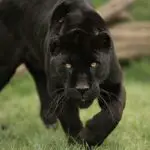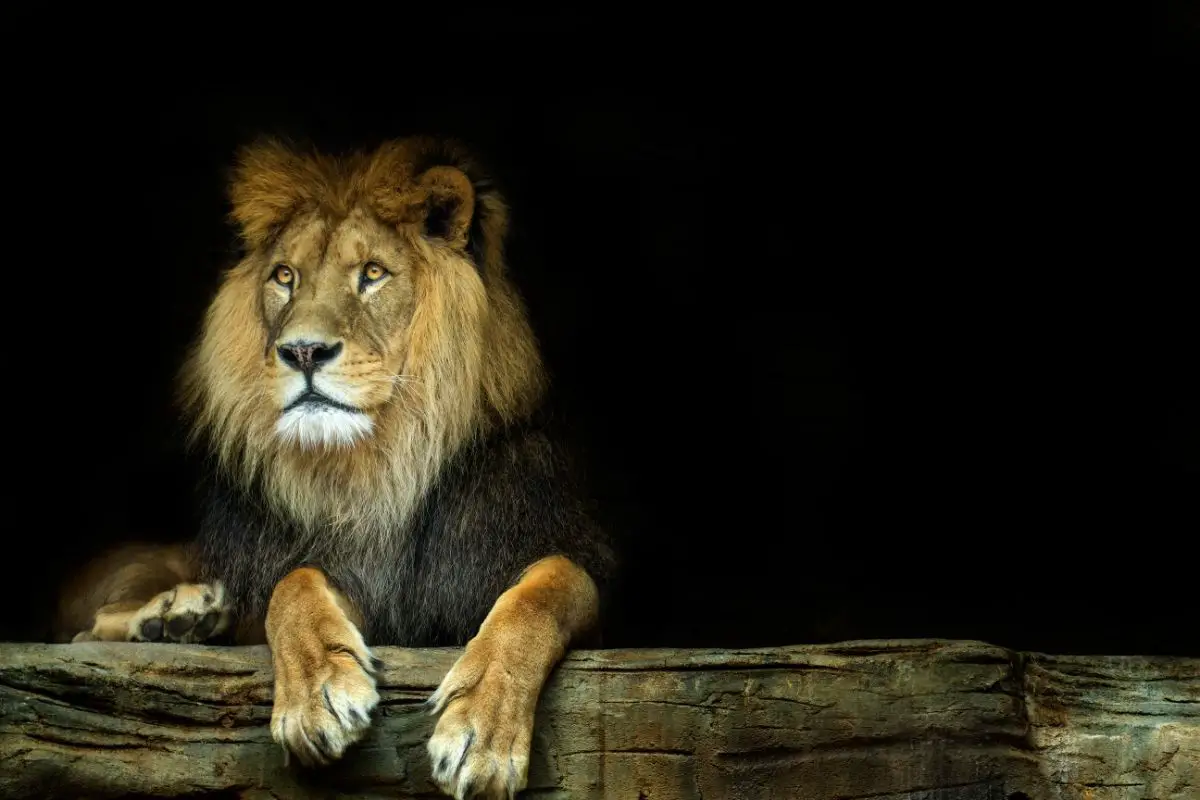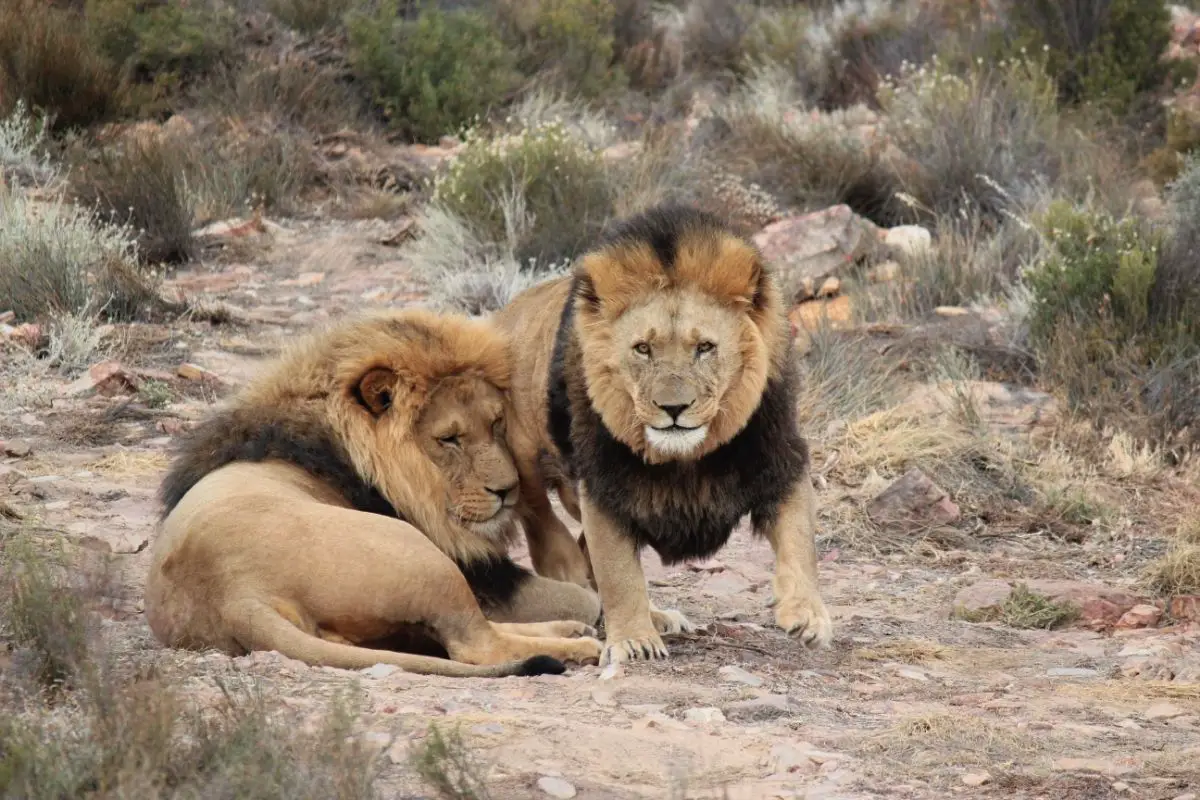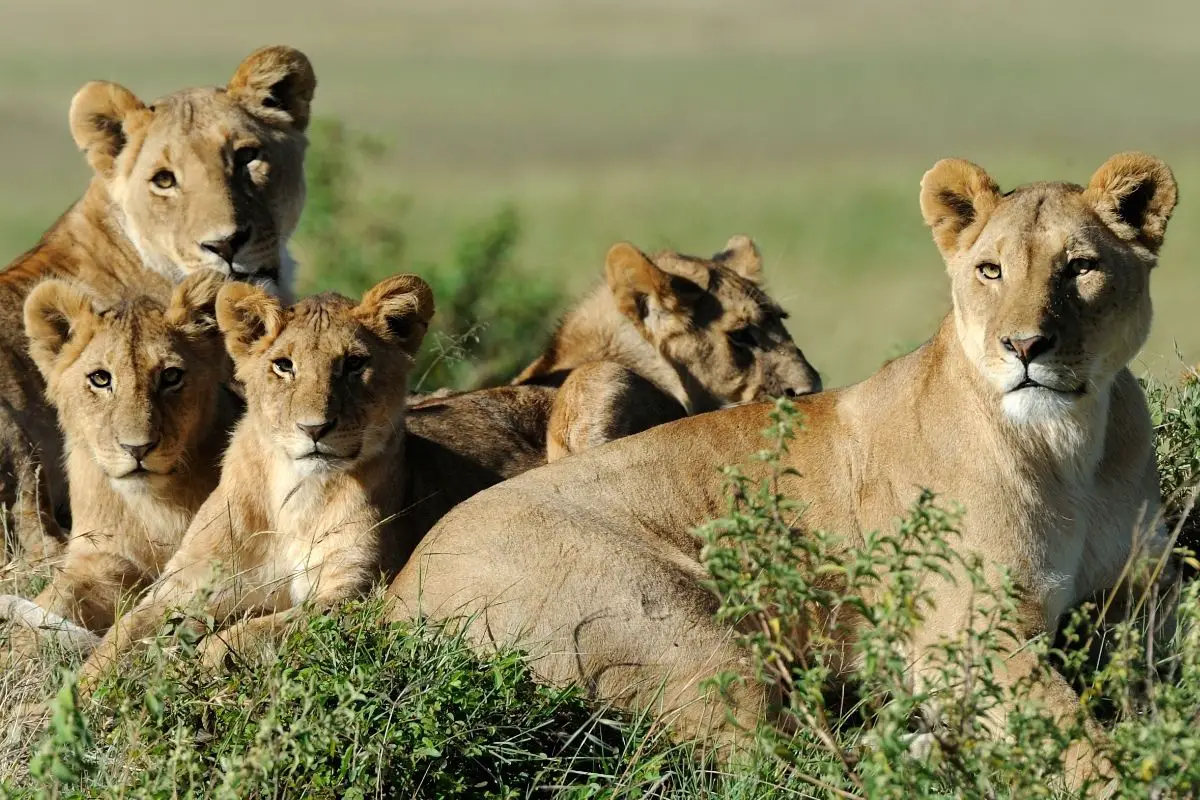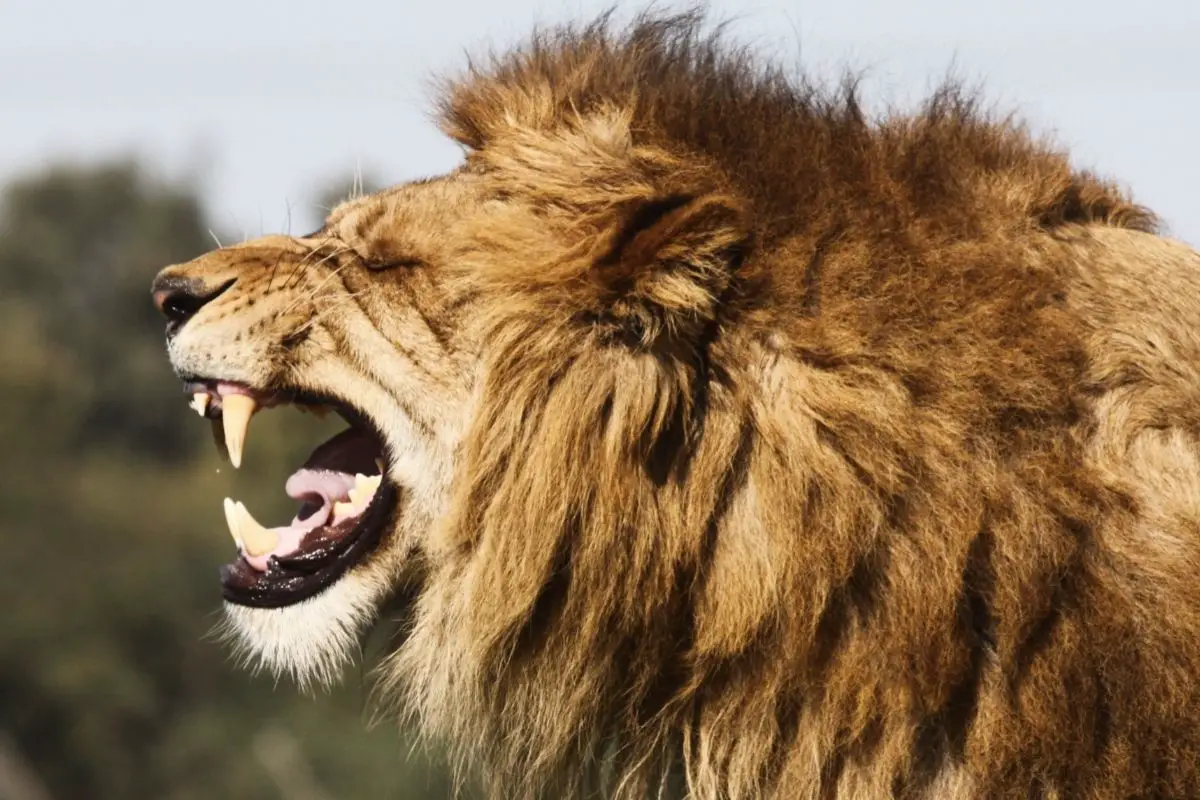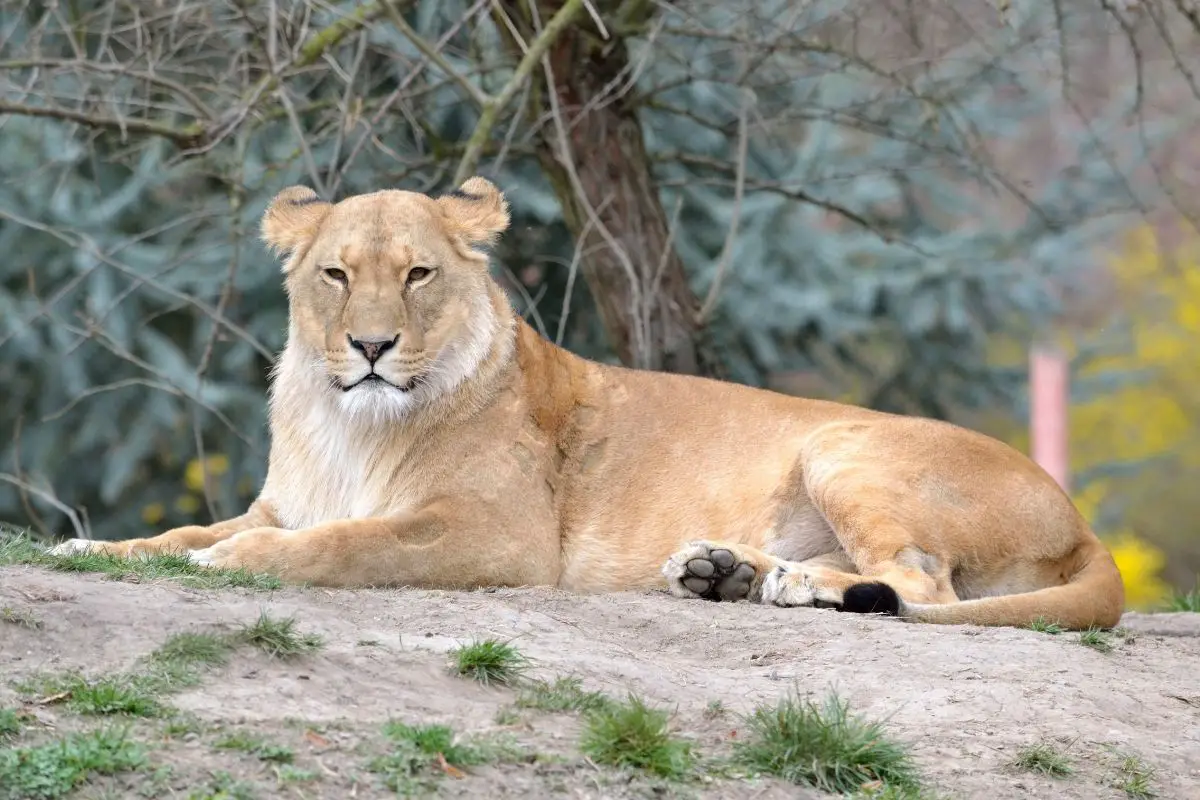Lions are arguably the most well-known of the big cats. They are the apex predators of their habitats and live together in groups known as prides. You can find lions in a lot of different countries all over the world.
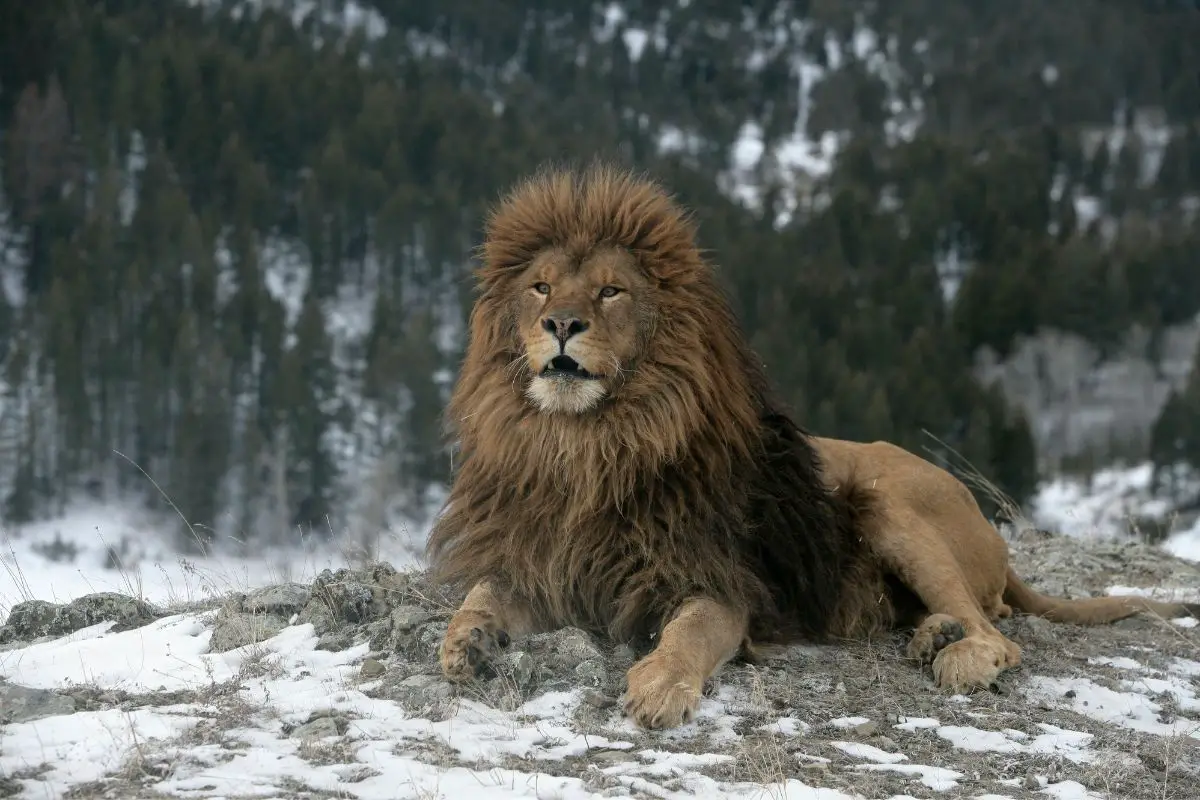
But did you know that not all lions are the same and there are a few different types?
In this article, we will be discussing one of the most well-known sub-species; the West African lions. So, read on to find out everything you need to know about this famous breed of lion.
What Is A West African Lion?
West African lions are a member of the Panthera leo subspecies of lion, which also includes Asiatic and Barbary. All three of these lions are very similar to each other, but they all have their own defining characteristics.
The West African lion is arguably the most well-known of all the subspecies of lions. If you see a cartoon version of a lion or you are watching a film that has a lion in it, it is most likely to be depicted as a West African lion.
In comparison to the Asiatic lion, the West African lion is much bigger. They have large manes, which they use as a defense mechanism and as a mating tactic.
They also have incredibly sharp teeth they use to rip apart the flesh of their prey and they have deadly claws.
They usually weigh between 265 and 420 pounds. They grow to be between 4 and 6.5 feet in length and their tails are somewhere between 26 to 29 inches long.
West African lions are the second largest of all the big cats, only tigers outrank them in size.
Where Can You Find Them?
These lions are found in the western regions of Africa, hence their name. You will mainly find them in Nigeria and Senegal.
They prefer grasslands, open woodlands, and savannahs. These areas are better suited for the West African lion’s hunting habits and tactics.
West African lions used to be found all over Africa and parts of both Europe and Asia, but they gradually disappeared from these regions and can now only really be found in sub-Saharan African areas.
You can find some in wildlife sanctuaries and reserves in other locations though.
What Do West African Lions Eat?
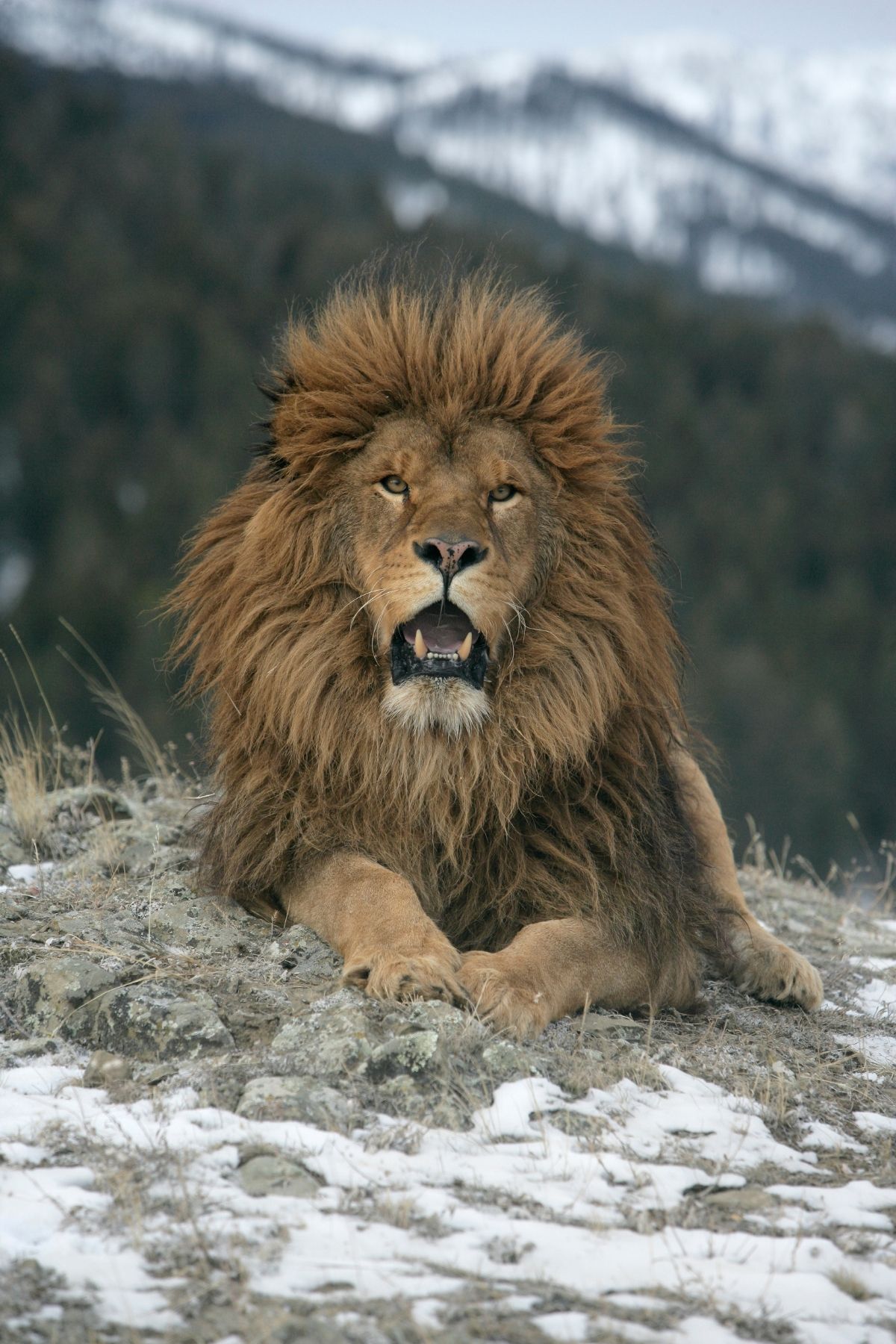
As with all lions, West African lions are predators and carnivores. Their diet usually consists of prey such as antelopes, buffaloes, zebras, young elephants, rhinos, hippos, wild hogs, crocodiles, and giraffes.
Lions are nocturnal hunters, so the main bulk of their hunting will occur at night.
Female lions are the main hunters of the West African prides, but the males do get involved in larger, more dangerous hunts.
Once they have made a fresh kill, the lionesses bring it back to the pride, where they all fight over who gets first dibs on the meat.
Lions Are Social Creatures
All lions are very social animals. The West African lions are no exception. They live in large prides that can consist of up to 40 lions at a time.
This is a considerable difference between them and the Asiatic lions, who usually live in very small prides and usually only have one male in the whole pride.
Because the prides of West African lions can get so big, they usually consist of up to 4 males.
The younger males always end up leaving their prides and finding another one, usually taking it from a weaker male.
In some cases though, the younger males will take their original pride from the alpha males too.
The rest of the pride consists of over a dozen lionesses and then the rest are the young lions and small cubs.
The female cubs will usually stay with the pride when they come of age and all of the lionesses are usually related.
The main job of the fully grown males of the pride is to defend the pride. They fend off anything that invades their territory with their famous roar, which can be heard 5 miles away from where they are standing.
They also mark their territory with urine and they chase off any invaders if they get too close.
It is also the job of the males to mate with the lionesses to keep the pride alive and growing. Because there are usually up to 4 male lions per pride, they share the lionesses.
Sometimes, other male lions from outside of the pride will try to take over and the already existing male lions must fight to secure their leadership.
If they cannot scare off or kill the invading male, they will be forced to leave or will be killed themselves.
If an invading male lion takes over as the leader of the pride, it will usually kill any young lions or cubs that already exist.
Lions are very territorial creatures and do not want a different lion’s bloodline to exist within their pride.
Are West African Lions Dangerous?
The short answer is yes, West African Lions are dangerous. They are large and fiercely protective of their territory and pride. If they feel threatened, they will attack and defend.
More often than not though, they will leave humans alone. Because they do not come in contact with us very often, they are overall not bothered by our existence, especially if we aren’t doing anything they find threatening.
Be that as it may, it isn’t advised for you to go up to a lion. If they were to be on the offensive, they wouldn’t have an issue in bringing a human down.
They are much stronger than us and if they got their teeth around any parts of our body, it wouldn’t end well for us. They are designed to hunt and designed to kill.
If they are hungry enough as well, they will attack without hesitation.
A starving lion is even more dangerous than a docile one. There have been some recorded cases of humans being killed and eaten by lions, though it isn’t a common occurrence.
Are West African Lions Endangered?
Though their existence isn’t threatened as much as their Asiatic cousins, the West African lion is still considered vulnerable on the IUCN Red List of Threatened Species.
In the last 25 years, their numbers have decreased by half, largely due to humans.
There are a few reasons why humans are a major cause of their dwindling numbers. Ranchers and farmers fear that lions will prey on their livestock, which would mean they would suffer a heavy financial blow.
In retaliation, they will kill the lions to avoid any further loss and they even use pesticides as poison.
Another key reason humans have played a part in their endangerment is because of trophy hunting and poaching.
Lions are a favorite of hunters and poachers because of their famous and dangerous status as “King of the Jungle”. But the number of trophy hunters has seemed to decrease over time.
Lots of people across the world think of trophy hunting as a very negative thing and in lots of places, it’s illegal now.
Other causes of their vulnerable status include a loss of prey in their habitats. Lots of animals that are considered lion’s food have been hunted consistently for years, with the meat being sold in the bushmeat trade.
Because of this, there are fewer of these species around and it makes it harder for the lions to be able to find them, which causes a lot of lions to die prematurely.
There are conservation organizations that exist though. They work with the goal of preserving these fantastic creatures and want to create a world where humans and lions can live together.
Some of the organizations work toward creating protected areas for the lions.
Others pay farmers when they have lost livestock due to lion attacks. Some even relocate lions to areas where they are less likely to be at risk of extinction.
Conclusion
These prolific big cats are one of the most famous animals in the world. They are very social animals, living together to protect their pride and help it to grow and flourish.
They are similar to the Asiatic lion, but there are much bigger and their prides are larger.
Whereas the Asiatic lion is more at risk of extinction, the West African lion is also under threat because of a variety of reasons.
Luckily, there are lots of conservation organizations that work towards the goal of helping humans in learning to live alongside lions.
Their goal is to protect the lions and humans simultaneously, giving both lion and man the chance to flourish without either species having to suffer.
Hopefully, you’ve learned a bit more about the West African lions from this article and you can share these facts with others.
And remember… just because these lions don’t usually attack humans, it’s in your best interest to stay out of their way. So if you ever find yourself face to face with a lion, retreat immediately!
- Sink Your Teeth Into This: Analyzing the Powerful Lion Bite Force - September 8, 2023
- Siberian Tigers: Everything You Need To Know - September 4, 2023
- Do Lions Eat Humans? Understanding Lion Aggression and Risks - September 4, 2023


